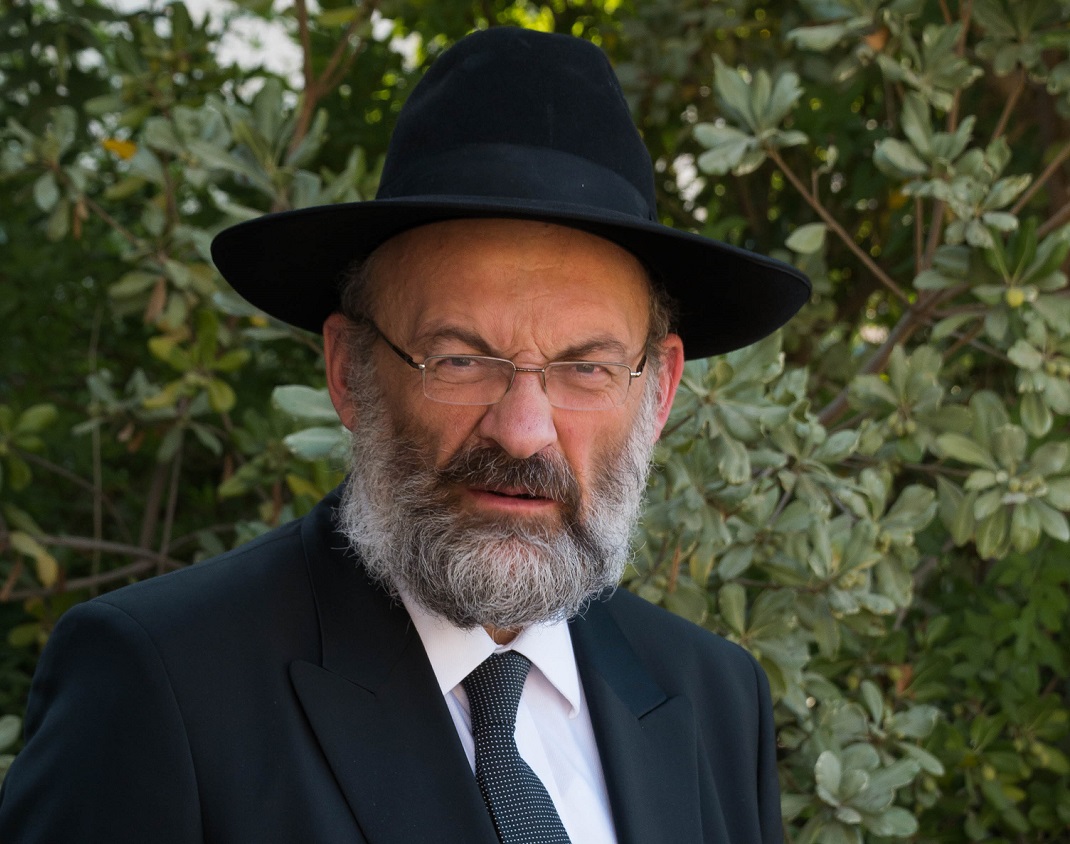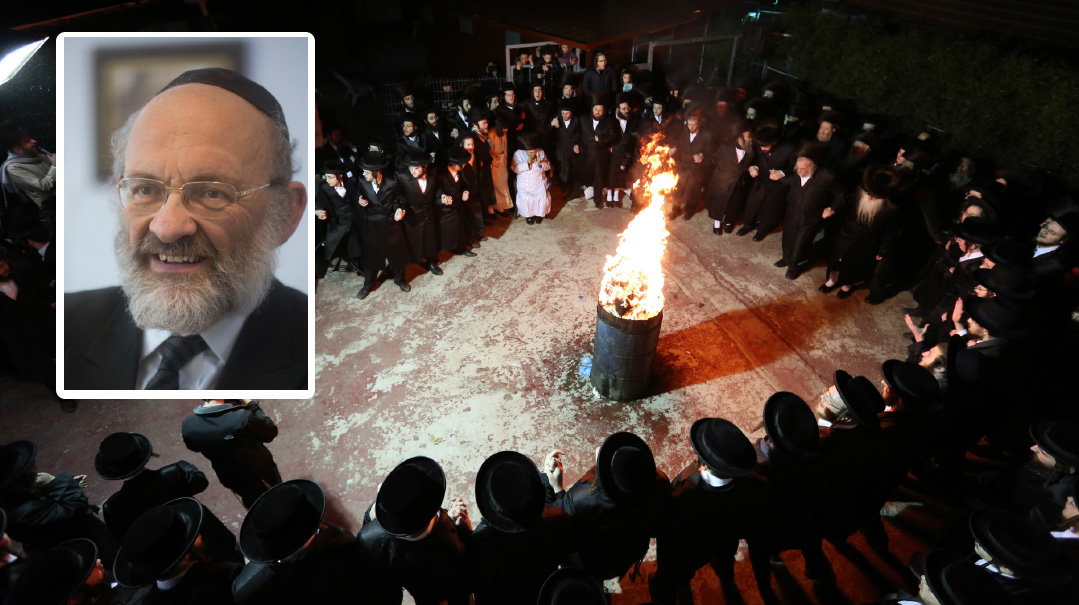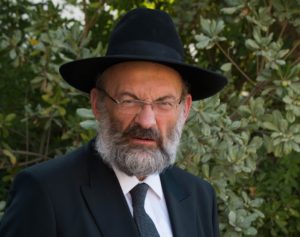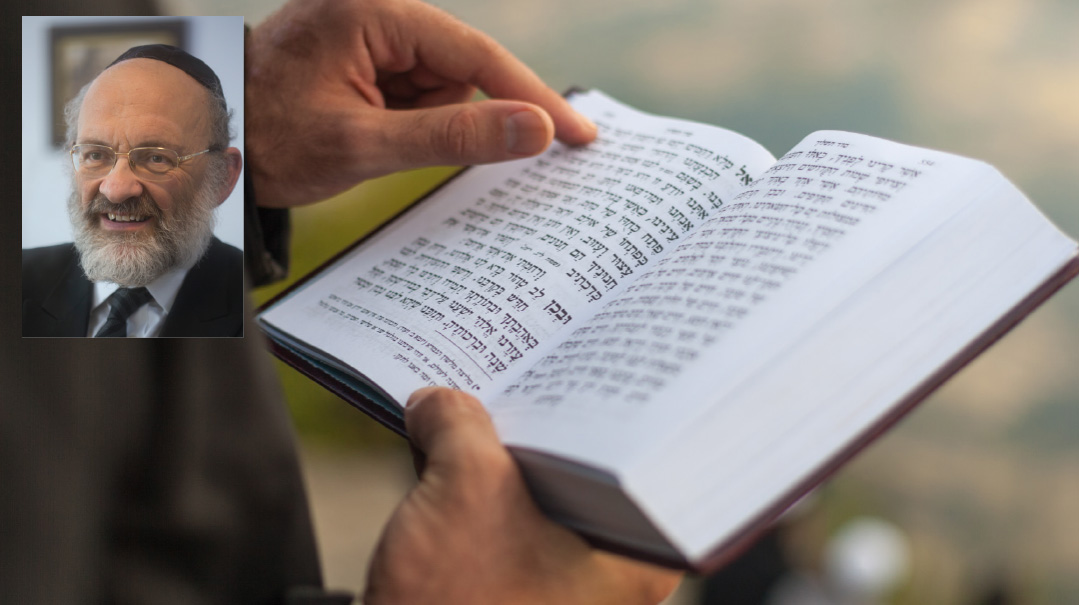Celebrate the Depth of Torah

Penimiyus in Torah doesn’t mean a new world. It means a deeper world

The powerful simchah on Lag B’omer is uplifting, but it’s shrouded in mystery. Many of us find ourselves dancing around a bonfire, wondering what exactly we’re celebrating. Rabi Shimon bar Yochai revealed secrets of the Torah, which an elite group of outstanding scholars can understand. That handful of mekubalim can rejoice in the revelation of the Torah’s hidden realms. But we have no clue what’s going on in those inner chambers of the Torah. Is there anything in the simchah of Lag B’omer that we can relate to, or is it a secret reserved for the wise few who study Rabi Shimon’s teachings?
To answer this question, we need to first understand a basic principle about Torah. The Midrash poses a fascinating question: Which is more central — Torah or Klal Yisrael? The answer seems obvious. The Torah is Hashem’s word, the blueprint and life force of Creation. And we are lowly beings of flesh and blood. But, says the Midrash, it is Klal Yisrael that is the main purpose of the world. The ultimate goal of Creation is a perfected Klal Yisrael, and Torah is the vehicle to bring the Jewish nation to its rightful level. Chazal liken the Torah to the wife of Klal Yisrael. The Torah is the “ezer k’negdo” that brings every Jew as an individual, and the Jewish People as a whole, to perfection.
I’ve seen how Torah builds a person. One day, I was running late to a vaad of Rav Wolbe ztz”l. In my rush, I threw open the door, and it slammed forcefully into something. That something was nothing other than Rav Wolbe’s back. I expected him to turn around and glare at me till I melted. But instead, I saw something unbelievable.
He carried on giving the vaad without even a pause. He didn’t turn his head. He didn’t move a muscle. He simply did not react. This wasn’t a scenario he had prepared for. It wasn’t his mind that told him to refrain from making mincemeat out of me. His body itself had internalized that it wasn’t the center of the universe and had no right to demand respect. It was the Torah that brought him to the level that his body was willing to take such a blow without protest.
The Torah is Divine, but it’s intended to build a person. It’s from the heavens, but it reaches down to us at our low level to raise us up. That’s what the secular world can never understand. The sciences deal with objective reality, and are unconcerned with the human being. The humanities deal with individuals and their trials and endeavors, but only through subjective lenses. Only Torah is both objective truth and yet deeply personal.
Every area of Torah builds a person. This is a major misconception people have about Torah in general, but especially about Kabbalah. People usually think of Kabbalah as abstract, mystical concepts that have little connection to our simple reality. They think it’s esoteric wisdom about exotic concepts, and people learn these concepts like someone viewing a distant galaxy with a telescope. It’s an exciting experience, but it doesn’t change them.
This is a fundamental mistake. The deeper levels of Torah wisdom are also aimed at building a person. If they don’t move a person to live differently, he’s missed the point, and what’s more, he didn’t understand the teachings. Someone who doesn’t see how they’re connected to the world we live in hasn’t grasped their true meaning.
Like all areas of Torah, the penimiyus of Torah isn’t a foreign world we glimpse from afar. It gives deeper meaning to the world we live in and enables us to live in our world at a higher level. The basic level of living is like a single-story building. When Torah teaches a person a deeper understanding about life, it adds another floor. He’s still grounded in the world, but he’s able to experience the world at a higher level as well. Everything in Torah can do this, because the Torah always offers us deeper perspectives about life than we would reach on our own.
Even the “simplest” aspects of Torah can add deeper meaning to life. For example, the Torah describes how the sun rises in the east, sets in the west, and returns the next morning to the east. We all know that astronomically speaking, it’s really the world turning on its axis, not the sun’s travels, that creates the cycle of day. But the Torah wants to build us, not to impart scientific facts, so it describes the phenomena in the way we relate to them and therefore learn from them.
When we think about this simple lesson, over time we’ll start to see its message to us. Every day is a cycle of renewal; each morning is a new beginning. We, and the whole world, are being created anew. That’s why the brachah Yotzer hame’oros is in the present tense, and that’s why we say asher yatzar and Elokai neshamah every morning, to thank Hashem for our physical and spiritual re-creation. The more we understand the depth of the Torah, the more it elevates us and enables us to live in the world at a higher level.
When something in the Torah moves us to live more deeply, it adds another level to the way we experience the world. That’s penimiyus — the deeper world built by Torah. The great Rabi Shimshon of Kinon said that after he learned the secrets of Kabbalah, he davened like a young child. He didn’t do intellectual somersaults or juggle mystical kavanos. He davened the same words the way we all do, but at a much deeper level.
I once heard a shiur from Rav Yonasan David shlita that captivated me. I couldn’t stop thinking about it. After a week, I felt I had reached a novel understanding of the matter and couldn’t wait to tell Rav Yonasan about my insights. I told him my “chiddushim” with great excitement, but when I finished, I was shocked. I realized that I had simply reiterated Rav Yonasan’s shiur, word for word.
Then he told me, “Now you’ve begun to understand.”
Penimiyus in Torah doesn’t mean a new world. It means a deeper world. Even within the exact same words we’ve learned already, we can find new meaning that moves us and raises our lives to a higher level.
That’s how we can connect to Lag B’omer. True, we don’t know the teachings of Rabi Shimon. But the point of his teachings isn’t the information itself, but to build a person, to move him to live a deeper life. And that’s true about everything in Torah. The hidden realms of Torah are just deeper levels of meaning, beyond those contained in the revealed areas. They are the uppermost floors in the building a human being can construct. We can’t all access those highest levels, but we too can reach higher levels through the Torah’s wisdom.
Of course, we shouldn’t get ahead of ourselves. When we see wisdom in Torah that shows us a higher level, it doesn’t mean we’re there yet. People sometimes learn lofty and inspiring ideas in Torah, and they forget that getting there takes years of work. Adding another level to a building is a gradual process of intense labor. But the first step is seeing that the Torah offers us a deeper way of living. Then, we’re ready to begin the journey.
Even we can experience how the Torah’s wisdom raises us to a higher level in life. We, too, have a connection to penimiyus. Even the simplest ideas in Torah are infinitely profound and offer us unbelievable depth — if we seek it. Even if we’re not scholars, we can approach Torah with wonder, eager to allow its depth to penetrate our hearts and elevate us. We can ponder the words of the Torah like a jeweler handling a perfect gem, observing it from all angles to discover its unique qualities. We too can celebrate on Lag B’omer, and rejoice in the revelation of the depth of Torah, and a Torah-driven life.
—Prepared for print by Rabbi Eran Feintuch
Originally featured in Mishpacha, Issue 858.
Oops! We could not locate your form.











